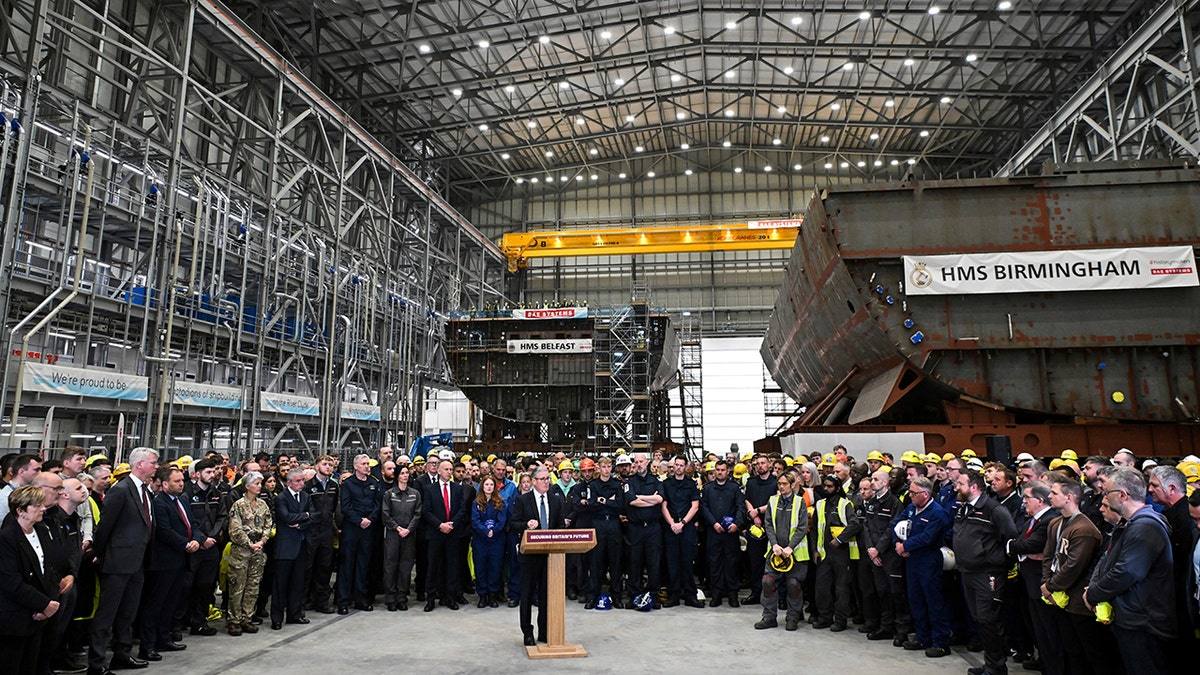
Image Source:
Source: foxnews.com
Image content: The image depicts a large crowd of people gathered in a shipyard, with a man standing at a podium in the center. The main subject is the construction of a naval vessel, likely HMS Birmingham, as indicated by the banner on the right side of the image. The content includes a formal event or ceremony, with dignitaries and workers present, highlighting the significance of the ship's construction.
Summary
UK Prime Minister Keir Starmer has announced a significant increase in military spending and capabilities, citing the threat from Russia, and plans to build new nuclear-powered submarines, increase conventional weapons production, and develop cyber command and drone technology.
Key Points
- UK to increase defense spending to 2.5% of GDP by 2027 and potentially 3% by 2034
- Plans to build up to 12 new nuclear-powered attack submarines as part of AUKUS partnership
- Investment in nuclear arsenal, conventional weapons stockpiles, and cyber command to counter Russia-linked attacks